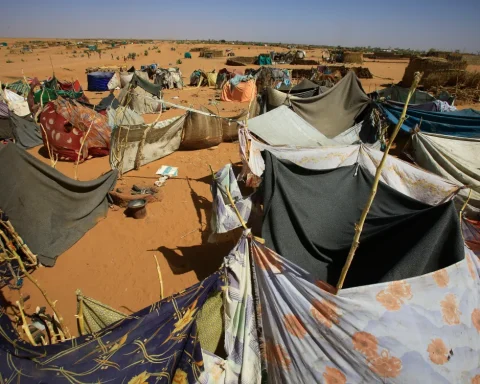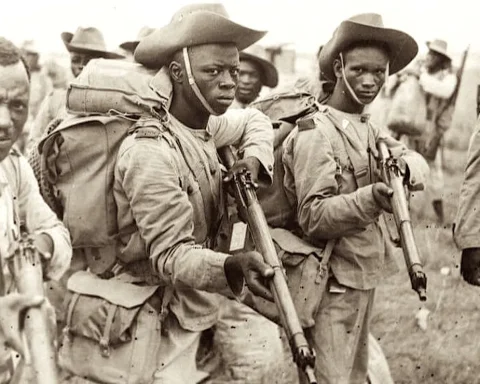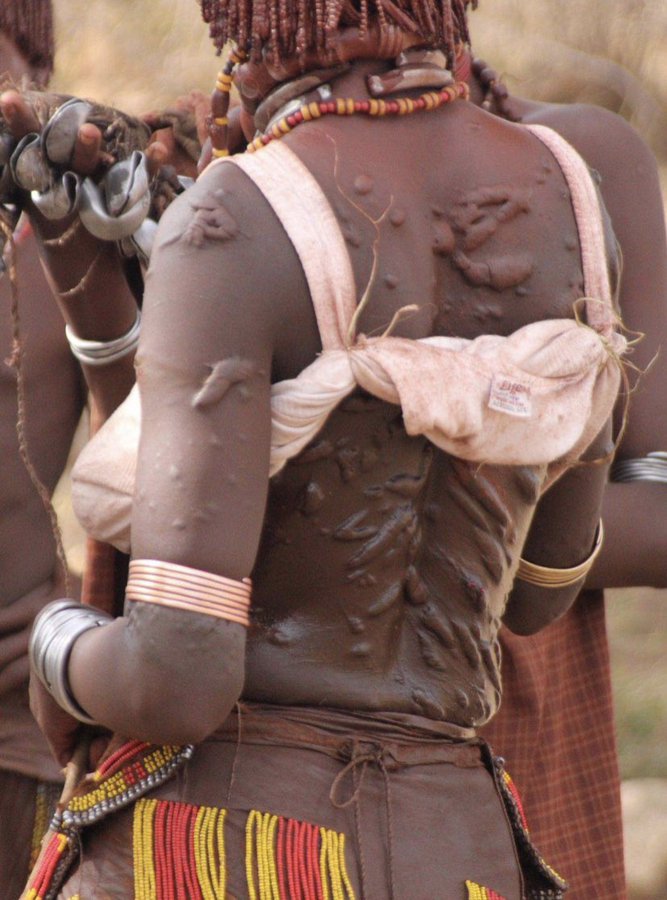 This is a strange and cruel ceremony practised by the Hamar Tribe of Ethiopia in which the women are flogged mercilessly to display their love and devotion.
This is a strange and cruel ceremony practised by the Hamar Tribe of Ethiopia in which the women are flogged mercilessly to display their love and devotion.
According to the people of the tribe, scars exhibit a woman’s ability for love, and if they fall on hard times later in life, it allows them to call on those who flogged them for help.
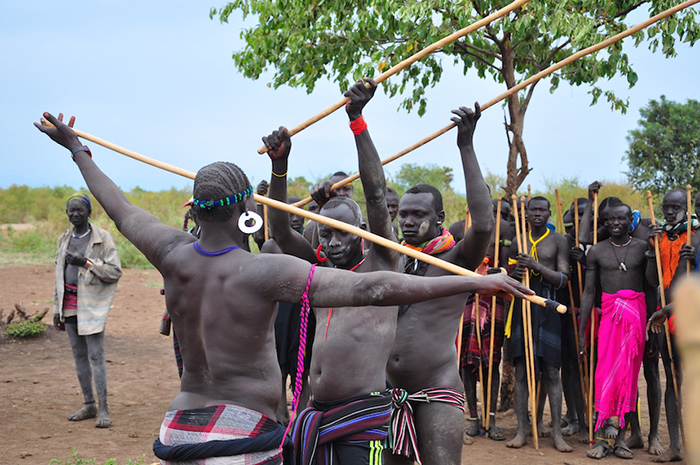
Women are flogged as part of a Rite of Passage ritual for boys when female family members declare their love for the young man at the festival’s heart. After the rite, the boy becomes a man and is allowed to get married.
The brutal practice is known as Ukuli Bula and was snapped by photographer Jeremy Hunter. Instead of escaping, women beg men to flog them again during the ritual held in the Omo River Valley.
 For men, male decoration is simple, except for their facial paintings, which indicate status and advancement up the social ladder.
For men, male decoration is simple, except for their facial paintings, which indicate status and advancement up the social ladder.
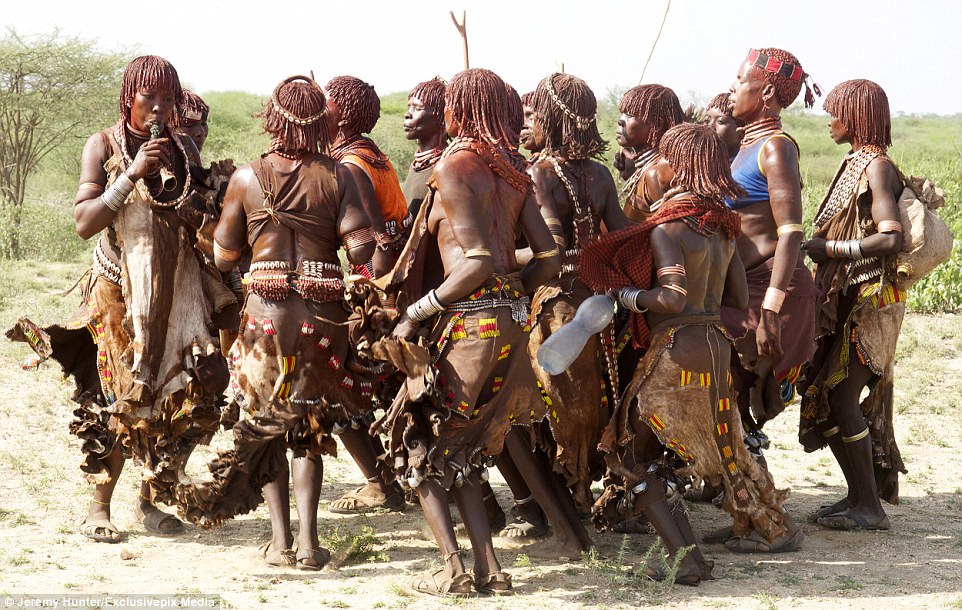
A vital element of the ceremony is the flogging of young ladies who are family members or relatives of the boy undergoing the Rite-of-Passage.
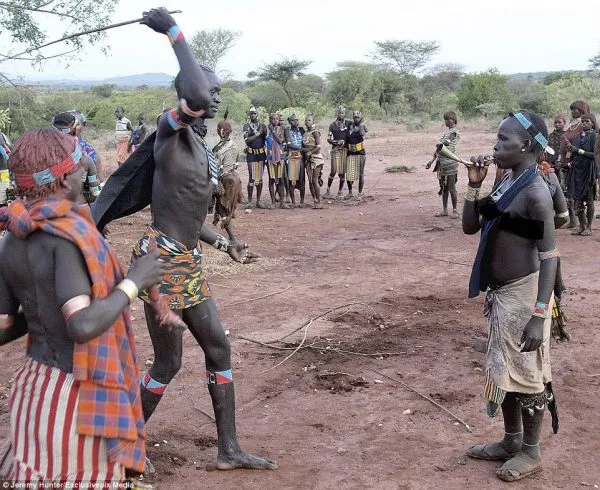 The women trumpet and sing, praising the virtues of the Jumper, expressing their love for him and their desire to be marked by the lash.
The women trumpet and sing, praising the virtues of the Jumper, expressing their love for him and their desire to be marked by the lash.
They rub butter on their bodies to lessen the effect of the flogging, which is only done by Maza – those who have already experienced this Rite-of-Passage.
Some flogging seems to be delicate, others more fierce. But once lashed, the girls proudly show off their scars – proof of their fearlessness and virtue.
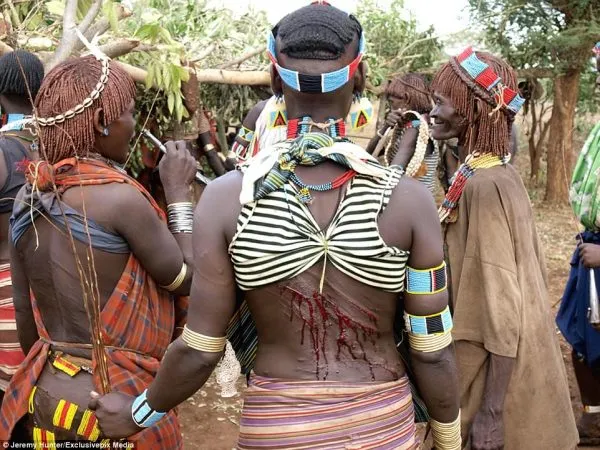
It is a kind of Insurance Policy. The tradition unites the family and demonstrates the women’s capability for love. In life afterwards – perhaps when they’ve become widowed – they will look to the boys who flogged them years earlier to ask for support.
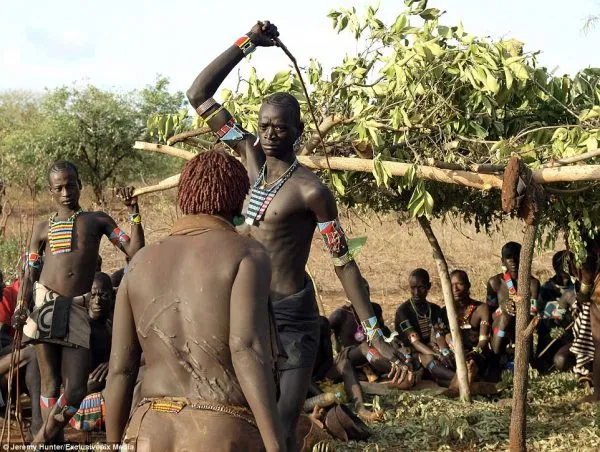 The scars mostly on her back are said to be evidence of her sacrifice for the man, and it is therefore unthinkable for the man to reject her needs in hard times or crises.
The scars mostly on her back are said to be evidence of her sacrifice for the man, and it is therefore unthinkable for the man to reject her needs in hard times or crises.
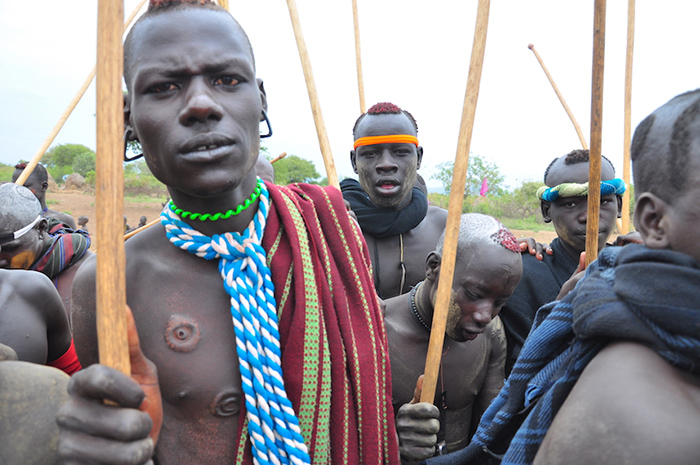 What do you think of this act?
What do you think of this act?




